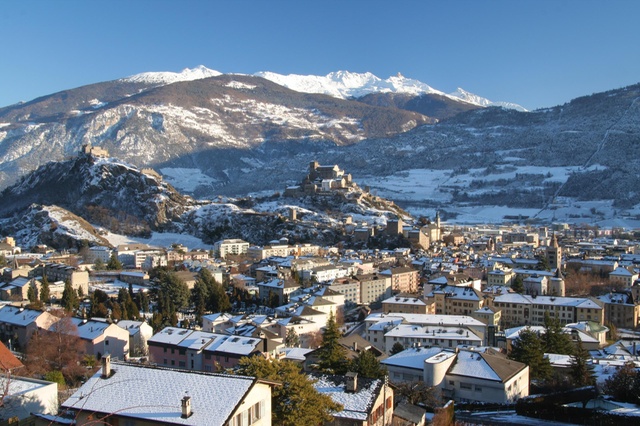Swiss cabinet backs 2026 Winter Olympic bid

Switzerland's federal government said Wednesday it is prepared to pay almost 1 billion Swiss francs ($1.02 billion) toward Sion hosting the 2026 Winter Olympics.
The Swiss federal council voted to support the proposed candidature, which could still be stopped by public opposition. It was a rare signal of support for hosting the Games after voters in the Austrian city of Innsbruck gave a thumbs down to the idea on Sunday, joining around a dozen cities that have pulled out of the running.
The Swiss government embraced the idea enthusiastically. "The government sees the Olympic Winter Games as a great opportunity for sport, the economy and society in Switzerland," it said after a cabinet meeting approved public support for the Sion 2026 campaign.
The Sion hosting plan, centred on its home canton of Valais, also includes proposed events in neighbouring Vaud — home to the International Olympic Committee in Lausanne — and German-speaking regions.
The federal council said it could contribute 827 million francs ($842 million) toward the organizing budget. Other possible costs include a contribution to the candidacy, renovating venues, and policing expenses.
Swiss Olympic said Wednesday it expected organizational spending of almost 2 billion francs ($2.04 million) would be offset by projected revenue of 1.15 billion francs ($1.17 million), including a contribution from the International Olympic Committee and ticket sales.
It set conditions that the project primarily uses existing infrastructure and focuses on sustainability by spreading events over various cantons (states) and relying on public transport.
The plan still needs support from parliament and could face referendums in cantons hosting events. Sion is in the canton of Valais, in the southwest of the country. Switzerland hosted the Winter Games in 1928 and 1948, both times in St Moritz in the eastern canton of the Grisons. Voters in that canton in February rejected raising money for pursuing a bid.
The IOC said on Tuesday said it would take a more "pro-active role" with potential 2026 host cities, introducing a non-committal "dialogue stage" running from October this year to October 2018. Bids from Kazakhstan, Turkey, Japan, Canada and the United States among others are still likely.

